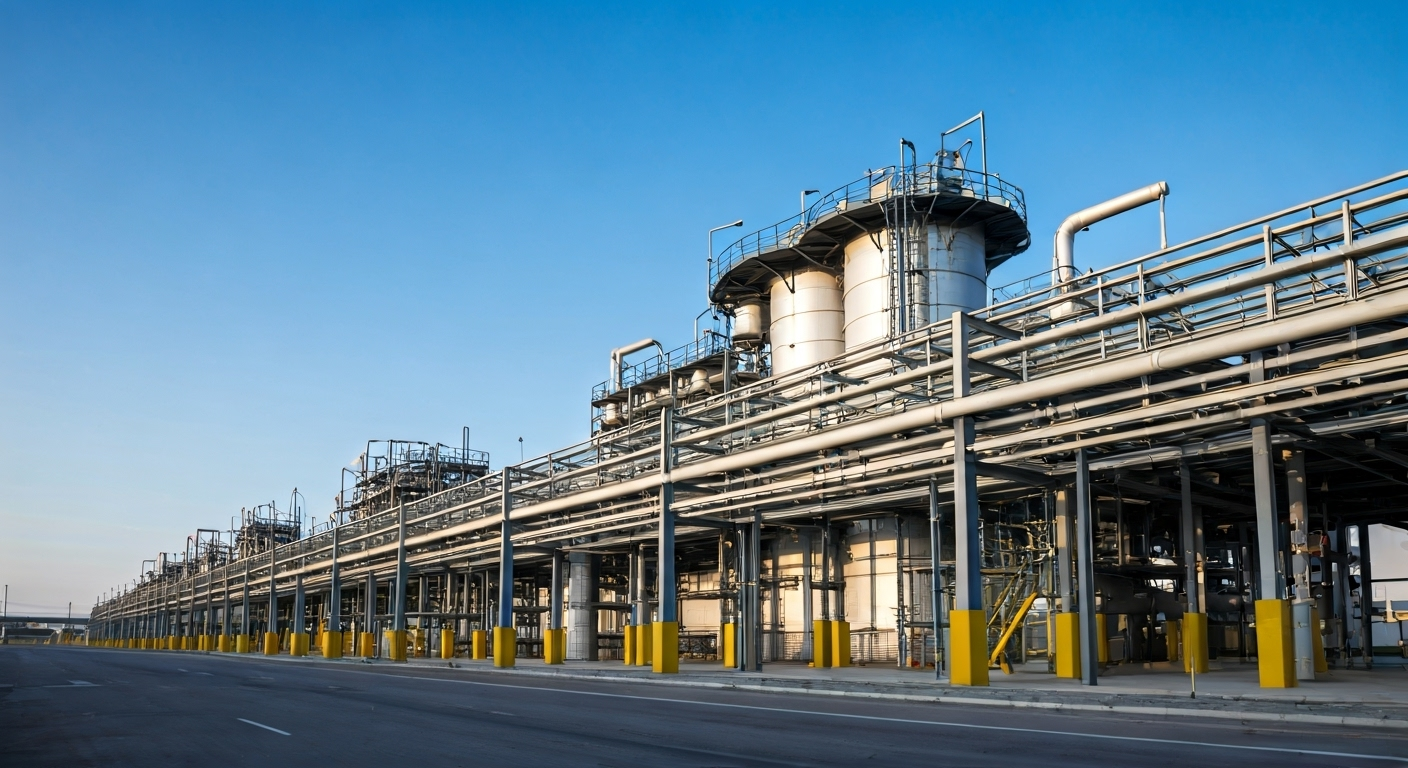-
中国河北省滄州市孟村県銀庄工業区

鍛造管継手:お客様のニーズに応える高品質のソリューション

主なハイライト
- 鍛造管継手は、炭素鋼、ステンレス鋼、合金鋼の材料を使用して作られており、卓越した耐久性と高圧性能を保証します。
- これらの製品は、高psi環境や腐食性アプリケーションなど、極端な産業需要に耐えるように設計されています。
- ソケット溶接継手とねじ継手は、多様な配管システムに安全で漏れのない接続を提供します。
- 石油・ガス、化学処理、発電など、さまざまな産業で広く利用されている。
- 耐食性に優れているため、厳しい環境に最適で、長寿命と強度を保証します。
- エルボー、ティー、レデューサー、カップリングなど、さまざまな形状があり、特定の用途に対応できます。
はじめに
鍛造管継手は、多くの配管システムにおいて重要な部品である。これらの継手は様々な産業で使用されています。彼らは、高圧がある場合でも、強く、長持ちするように作られています。これらの鍛造継手は、石油やガスの精製所、また海洋の仕事のためによく働く。彼らは重要な役割を果たしています。パイプを接続したり、パイプの向きを変えたり、必要な場所でパイプを止めたりするのに役立つ。
パイプ継手は、炭素鋼、ステンレス鋼、その他の良質の合金から作られている。これらの材料は、継手が腐食を撃退し、毎日しっかりと仕事をするのに役立ちます。あなたのシステムがスムーズに動作するように、これらの継手を信頼することができます。彼らはあなたの配管システムに必要な品質を与え、それが長年続くようにします。彼らは強度と永続的な使用の両方のためのあなたのスマートな選択肢です。
鍛造管継手を理解する

鍛造とは、大量の熱と高圧を使って金属を成形する方法である。これにより、非常に丈夫なパイプ継手ができる。これらの鍛造継手は、合金鋼または炭素鋼から作られています。彼らは鋳造継手のような他のタイプよりもはるかに強いです。鍛造パイプ継手は本当によく高圧を扱うように構築されています。彼らはまた、多くの使用に耐え、簡単に磨耗しない。
丈夫であるとともに、鍛造パイプ継手は腐食を止める良い仕事をします。その丈夫な作りは、人々が蒸気、有毒流体、または腐食の原因となるガスを扱う場所でも、これらの継手がうまく機能するようになります。炭素鋼や合金鋼から作られた鍛造継手を選択した場合は、耐久性を取得し、厳しい条件下でも、それらに依存することができます。
鍛造管継手の主な特長と利点
鍛造管継手は強度が高いことで知られ、多くの工業用配管システムの重要な部分となっている。その強さは、製造方法から生まれます。鍛造工程は、炭素鋼や合金鋼の部品をより丈夫にします。
これらの鍛造継手は、9000psiまで行く評価で、高圧を取ることができます。ソケット溶接とねじ継手から選択することがあり、ジョブの多くの種類のリークを停止するのに役立ちます。彼らは腐食を撃退することができますので、酸性または有毒であるもののように、悪い流体を扱う場合でも、彼らは長い時間を持続させる。
主なメリットは以下の通り:
- 高圧に対応し、タフな仕事には最適だ。
- ねじ込み式フィッティングにより、作業や修理の際の組み立てや分解が容易。
- 長持ちし、信頼性も高いので、トラブルによる時間のロスも少ない。
- 彼らはさまざまなパイプや素材を扱う。
鍛造継手を選べば、配管システムをより良く、より長持ちさせることができます。
オーストラリアの産業でよく使われるタイプ
鍛造管継手は、オーストラリアの多くの産業分野で重要な役割を果たしています。鉱業、海洋、そして人々が力を生み出す場所で見かけることができます。これらの継手の強力なビルドと、多くの仕事にそれらを使用することができますどのように物事がスムーズに実行を維持するのに役立ちます。さまざまな分野で活躍していることがお分かりいただけるでしょう。
一般的なタイプとしては、ねじ管継手、ソケット溶接継手、レデューサーなどがある。これらの継手は、多くの場合、合金鋼や炭素鋼から作られています。これは、それらの頑丈な継手を与え、それらを身に着けているから腐食を停止するのに役立ちます。彼らは多くのNBサイズで作られているので、異なるパイプ幅でそれらを使用することができます。
タイプ | 主な特徴 |
|---|---|
ソケット溶接 | 漏れ防止、高圧用途。 |
ネジ付きパイプ | 設置もメンテナンスも簡単。 |
減速機 | さまざまな直径のパイプを接続する。 |
どのタイプを選んでも、鍛造継手は信頼できる強度と耐久性を与えることで、オーストラリアの産業を支えています。
結論
結局のところ、鍛造管継手は多くの産業で重要な役割を担っている。これらの継手は、さまざまなニーズに対する質の高い回答を提供します。強度と長期的な使用のような特別な機能は、鍛造パイプ継手は、多くの仕事のためのトップピックになります。これは、圧力が高い場所では特に当てはまります。90度エルボー、ティー、ユニオンなど、さまざまなタイプの継手について知っておくとよい。これは、あなたの仕事に適したものを選ぶのに役立ちます。良い鍛造継手を使用することは、配管がより安全に、より良く機能することを意味する。あなたの次のプロジェクトに強力な鍛造パイプ継手を使用したい場合は、今すぐ無料で話をするために私達に連絡してください。
90度エルボー
90度エルボは、パイプラインの進み方を90度変えるのに役立つ重要な鍛造管継手である。炭素鋼や合金鋼から作られているので、高圧や腐食に耐えることができます。これらの継手は、偉大な耐久性を持っています。ソケット溶接の設計は、タイトな漏れ防止のフィットを与えるため、これらの継手は、工業作業の多くの種類で多く使用されています。
90度エルボは、水、蒸気、ガスなどを移送するパイプラインで使用される。90°エルボは、多くのパイプサイズに使用でき、必要なサイズに合わせることができます。ほとんどのサイズは1/2 "から4 "まであるので、このソケット継手を使う方法はたくさんある。
腐食によく耐えるため、この合金鋼エルボ継手は、化学プラントや石油・ガス精製所のような過酷な作業にも十分な強度を発揮します。鍛造炭素鋼または合金で作られた90度エルボを選ぶことで、システムが良好に作動し、強度を維持し、状況が厳しくなっても作動し続けることができます。
45度エルボー
45度エルボは、配管システムの流れの方向を45度変えるのに役立ちます。この部品は、強力な合金と炭素鋼から作られています。高圧のセットアップで効果を発揮し、長期間使用できます。
45度エルボは、NPTネジ付き、またはソケット溶接設計で入手できる。パイプを簡単に接続でき、タフで過酷な条件にも対応できる。多くの人が、蒸気、酸、有毒流体を移送するパイプラインで使用しています。1/2 "から4 "まで、さまざまなサイズがあるので、多くのニーズやセットアップに適合する。
45度エルボは腐食に対抗できるように作られています。そのため、システムがより長く機能し、よりよく作動します。産業界がこの継手を選ぶと、メンテナンスが減り、流体の流れが良くなります。
ストリート・エルボー
ストリート・エルボには、オスとメスのネジ山が1つずつ付いている。そのため、すぐにパイプを接続することができる。余分な継手は必要ありません。炭素鋼のような強力な材料から作られ、これらのエルボは最後に鍛造されています。彼らは高圧を扱うことができ、過酷な環境では壊れません。これは彼らに良い耐久性を与える。
ストリート・エルボは、多くのパイプ・サイズのオプションで使用できます。エルボは、パイプの流れを90度または45度変えるのに役立ちます。ストリートエルボは、海水淡水化プラント、発電所、石油化学システムなどの場所で見られます。これらのエルボは、さまざまなねじ切りの選択肢があるため、簡単なインストールと簡単な維持管理を提供します。
リデューサー機能により、異なるサイズのパイプ間を簡単に移動できる。これは、ユニークなセットアップやカスタムセットアップに最適です。強力で柔軟なパイプ接続が必要な場合は、ストリート・エルボをお選びください。
ティー
鍛造ティー継手は、三方コネクターとして機能する。流体が複数の出口を通るようにします。炭素鋼ソケット溶接ティー、ネジ付きティー、ASTM規則に従うティーなどのタイプで入手できます。これらの継手には、等流量と減少流量の両方の形状があります。
ティー継手は、タフで優れたシステムを求める多くの産業で必要とされている。そのデザインは小さいので、狭いスペースにもよくフィットする。彼らは圧力が高い場合でも強力な性能を与える。サイズは½ "NBから4 "に実行されます。これらの継手は、多くのセットアップで使用するのは簡単です。
耐食性に優れ、ASTM規格に適合した炭素鋼製継手です。これは、仕事が非常に困難になった場合でも、あなたに確かな結果を与える。ティー継手は、化学的な仕事や船舶で使用されるシステムのようなもので使用されます。彼らは、流れと接続が良好であることを確認するのに役立ちます。
クロス
クロス継手は、パイプを4つの異なる方法で簡単に接続することができ、システム内に流体が流れる経路をたくさん作るのに役立ちます。丈夫なスチール製なので、ハードな使用や腐食、高圧にも耐えることができる。これらの継手にはねじ切り加工が施されており、多くの種類の作業に適しています。
造船や石油精製などの業界では、これらの継手を使用して、タフで変化するパイプシステムを処理します。継手のサイズは1/2インチNBから4インチまであり、複数の方向に流体を移動させる必要があるほとんどのシステムに適合します。
このフィッティングの最大の特徴は、耐久性に優れていることだ。丈夫な作りで、他のセットアップにぴったりフィットする。つまり、長持ちし、作動を維持するために多くの作業を必要としない。
ラテラル
ラテラル継手は、パイプライン内で流れの方向を斜めに変える必要がある場合に重要な役割を果たします。鍛造合金鋼から作られたこれらの継手は、強度と柔軟性の両方をもたらします。これは、流体やガスのスムーズな流れに役立ちます。
ラテラル継手はソケット溶接設計と相性が良い。これらの継手は、酸性流体を扱う場合や高圧の場合など、厳しい場所でも使用できます。さまざまなサイズのパイプに適合するため、さまざまな種類のシステムで使用できます。
丈夫で耐久性のある素材から作られ、耐腐食性に優れたこれらの継手は、工業作業において流れを安定させる。この強力な継手なしに、忙しい場所で物事をうまく運ぶことを考えるのは難しい。
クイックレッグ90
QuikLeg 90は、流れを素早く90度回転させるために作られた鍛造パイプ継手です。丈夫なスチール製です。この継手は高圧を扱うことができるので、簡単に漏れたり壊れたりすることはありません。
QuikLeg 90は、ガス、蒸気、腐食の原因となる流体を移送するパイプラインで多く使用されています。このパイプは、1/2インチから4インチまでのねじ込み式パイプを接続します。QuikLeg 90は腐食によく耐えます。そのため、過酷な作業にも適しています。
化学加工や食品加工のような多くの産業で、QuikLeg 90継手が頼りにされている。彼らは、これらの鍛造継手から仕事に良い利用を得る。
リップ・ボス
リップ付きボスは、管継手において重要な部品である。多くの作業で、作業をスムーズに進めるのに役立つ。この継手は、ボルトのための強固な土台となるため、パイプが結合する部分はしっかりと固定される。さまざまな業界の高圧の場所で、多くの人が使用している。
これらの継手は、鍛造炭素鋼やステンレス鋼のような強靭な素材で作られていることが多い。そのため壊れにくく、応力や腐食に強い。このため、ソケット溶接継手とネジ継手の両方で使用されます。多くの種類の配管システムに適合し、ほとんどの産業でうまく機能します。
ソケット溶接&ねじ込みカップリング
ソケット溶接継手やねじ継手は、多くの配管システムで重要な役割を果たしています。これらの継手は様々な産業で使用され、強固な接続に役立っています。高圧に対応し、長持ちするように作られている。多くは鍛造炭素鋼やステンレス鋼から作られており、耐久性に優れています。
ソケット溶接継手は、継手をしっかりと溶接できるため、漏れの可能性が少ない。ねじ込み式継手は組み立てが簡単で、特別な工具を必要としない。ソケット溶接継手とねじ込み継手の組み合わせは、多くの作業に使用できることを意味します。圧力が低くても非常に高くてもうまく機能する。そのため、さまざまな業界のあらゆる用途に適している。
プラグ&ブッシュ
プラグとブッシュは、配管システムにおいて有用な部品です。これらのシステムがどのように機能し、安全性を保つかに大きな役割を果たしています。鍛造炭素鋼やステンレス鋼のような強力な材料から作られたこれらの継手は、開口部を密閉するのに役立ちます。また、異なるサイズのパイプの使用や、異なる圧力への対応を容易にします。
中にはNPTのネジ山を持つものもあり、高圧での使用に適している。様々な産業で使用されています。継手は腐食に強く、簡単には壊れないため、耐久性に優れています。過酷な場所でも長持ちします。プラグとブッシングを使用すると、システム内の流体の動き方を管理し、すべてがうまく機能し続けるのに役立ちます。
レデューサーインサート
レデューサーインサートは、パイプシステム内の水やその他の物質の流れを改善するのに役立ちます。炭素鋼やステンレス鋼で作られています。つまり、丈夫で長持ちします。レデューサーは、システムをあるパイプサイズから別のサイズに簡単に変更することができます。システムの圧力が高い場合によく使用されます。
使用される材料は、良好な耐久性を与え、腐食から保護するのに役立ちます。これらの管継手は、ASTM規格に従って作られて取得します。これは、彼らが他の鍛造継手とうまく動作するのに役立ちます。各減速機は、ネジまたはソケット溶接接続に適合することができます。これは、人々が信頼し、長持ちすることを確認することができます部品を必要とする作業の多くの種類のためにそれらを有用になります。
レデューサー&キャップ
レデューサーとキャップはパイプ継手において重要です。これらのパーツを使うことで、システムの使い方やセットアップの方法が増えます。レデューサーとキャップは、パイプのサイズを変更するために使用することができます。炭素鋼やステンレス鋼のパイプに使えるので、長持ちします。鍛造炭素鋼や合金鋼のような強力な材料は、これらの部品を丈夫にし、高圧を扱うことができます。
六角頭またはNPT接続を選んでも、これらのパイプ継手は使いやすい。毎回素早く取り付けられる。彼らはパイプの多くの種類に適合し、さまざまなプロジェクトで動作します。あなたは、あなたのパイプシステムでレデューサーとキャップを使用するたびに、あなたの仕事のための右のフィット感、強度、耐久性を得ることを知っている。
労働組合
ユニオンは、パイプの異なるセクションを接続し、流れがスムーズになるようにします。これらの継手は、鍛造炭素鋼やステンレス鋼のような多くの材料から作られています。それらは高圧を扱うために造られ、よい耐久性を提供する。人々は高性能の仕事でユニオンを使用します。彼らは、メンテナンスのためにパイプを分解し、他の近くのセクションを移動することなく、必要なときに物事を修正することが容易になります。あなたは、異なるスタイルでユニオンを得ることができます。あるものはねじ切りされ、あるものはソケット溶接を使用する。そのため、多くの産業で使用されている。ユニオンは、パイプをうまく機能させ、流れを良く保ち、漏れの可能性を低くします。
よくある質問
鍛造管継手と鋳造管継手の主な違いは何ですか?
鍛造管継手は、金属を高圧で成形して作られる。これにより強度が増し、長持ちする。一方、鋳造管継手は、溶かした金属を型に流し込んで作ります。これらの継手はさまざまな用途に使用できるが、鍛造継手ほどの強度はない。鍛造工程で高い圧力をかけて作られたパイプ継手の方が、タフな仕事には適していることが多い。
自分の用途に合った鍛造継手を選ぶには?
適切な鍛造継手を選ぶには、定格圧力、素材の種類、使用目的などを検討する必要があります。あなたのプロジェクトに何が必要か考えてみてください。温度やどのような接続が必要かを確認します。これは、継手がうまく機能し、長持ちすることを確認するのに役立ちます。鍛造継手とその耐久性に注目することで、システムを丈夫で安全に保つことができます。
鍛造管継手は高圧環境に適していますか?
はい、鍛造管継手は、より強度があり、長持ちするので、高圧の場所に適しています。これらの継手が作られる方法は、高熱や圧力の大きな変化に対応するのに役立ちます。つまり、油田やガス田、化学プラント、水道工事などで使用できるのです。そのため、強度を維持するために信頼できるパイプ継手が必要な場合、鍛造継手はその余分な耐久性を提供します。
オーストラリアの鍛造管継手にはどのような規格が適用されますか?
オーストラリアでは、鍛造管継手はオーストラリア規格AS 4125およびAS 3688に適合する必要があります。これらの規格は、安全性と品質の確保に役立っている。規格は、パイプ継手が何でできているか、どのように作られているかをチェックするためにあります。また、継手がどのようにテストされるかを説明しているため、人々が使用する際にさまざまな方法でうまく機能します。これにより、鍛造された継手が丈夫で安全に使用できることが確認される。
鋳造管継手と比較して、鍛造管継手を使用する利点は何ですか?
鍛造管継手は、優れた強度と耐久性を含め、鋳造継手よりも多くの利点を提供します。欠陥が発生しにくく、結晶粒構造が緻密で、より高い圧力に耐えることができます。さらに、鍛造継手は一般的に疲労や応力に対する耐性が高く、様々な産業における重要な用途に最適です。


